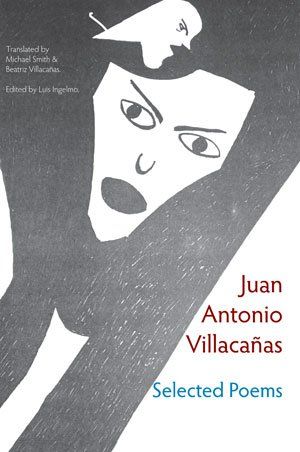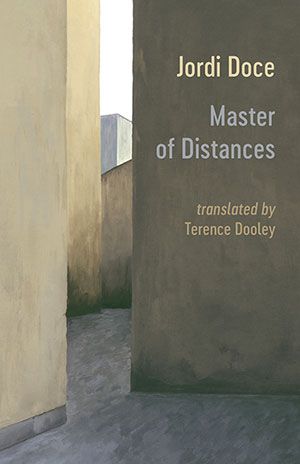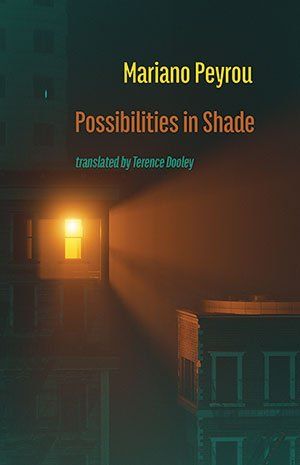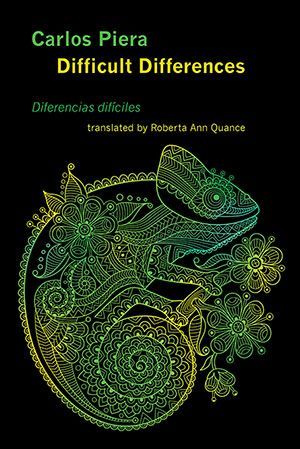Translations from Spanish, Galician & Catalan
Gustavo Adolfo Bécquer Collected Poems — Rimas
Translated from Spanish by Michael Smith. Bilingual edition.
Edited by Michael Smith & Luis Ingelmo.
Published 2007. Paperback 8.5x5.5ins, 184pp, £12.95 / $20
ISBN 978-0-907562-65-2 [Download a sample PDF from this book here .]
Gustavo Adolfo Bécquer was one of Spain's most important poets of the 19th century, and the instigator of a new Spanish version of Romanticism, influenced by German models such as Heine. Born in Seville in 1836, the son of an artist of Flemish origin, he lived only 34 years but in that time created a hugely influential body of verse (his Rimas , or Rhymes) as well as several short fictions (the Leyendas , or Legends).
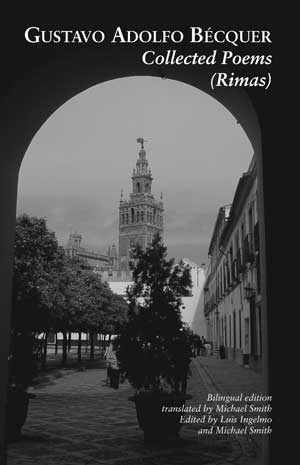
Yolanda Castaño Second Tongue
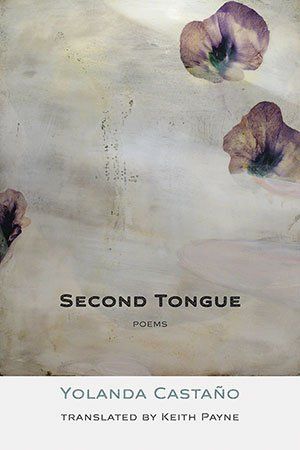
Rosalía de Castro Selected Poems

María do Cebreiro I am not from here
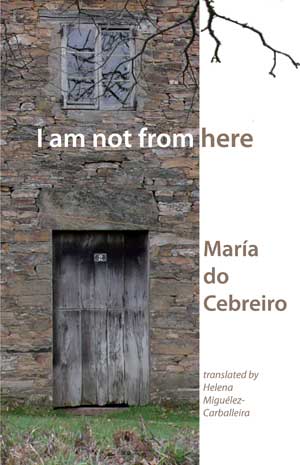
María do Cebreiro The Desert
Translated from Galician by Keith Payne. Bilingual.
Published 2019. Paperback, 70pp, 8 x 8ins, £10.95 / $18
ISBN 9781848616240 [Download a sample PDF from this book here.]
"The majority of these poems exist thanks to a convalescence that lasted half a year and that, like the practice of Hesychasm, forced me to become quiet, solitary and silent.
In the writing of this book I was very inspired by the audio-visual piece
Et la guerre est a peine comencée (And the war has only just begun), from Tiqunn Collective, who I had first heard about thanks to the publisher and philosopher Roberto Abuín. The voice-over in the film recalls the profound but unstable connection between the world's will to distance, and the creation of community. The first hermits set out alone but eventually found each other in the middle of the desert. As we learn from Deleuze, nomadism is not a refutation of the centre, but the recognition that life moves and we need to be quick to catch it." —María do Cebreiro

Mercedes Cebrián Affordable Angst — Selected Poems
Published 2022. Paperback, 144pp, 9 x 6ins, £12.95 / $20
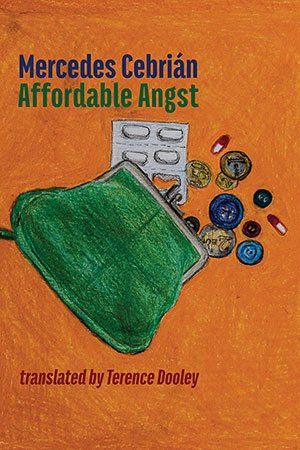
Jordi Doce Nothing Is Lost — Selected Poems
Translated from Spanish by Lawrence Schimel. English only.
Published 2017. Paperback, 118pp, 9 x 6ins, £12.95 / $20
ISBN 9781848615304 [Download a sample PDF from this book here .]
"This volume brings together poems from six collections originally published between 1990 and 2011. I have divided the selection into five sections that correspond, broadly, to the separate stages in which they were written. The final and briefest one includes five fragments from Perros en la playa [Dogs on the Beach], a miscellany of prose, poetry and aphorisms that I published in early 2011.
In my opinion, a Selected should not solely contain poems that have been often anthologised or singled out for praise by critics and readers. It should give a more or less accurate view of the variety and development of one’s output over the years. Therefore, I have not shied away from including some youthful pieces or the odd experiment—not to mention poems for which one feels an immoderate fondness, which no amount of critical scrutiny can ever hope to dispel." —Jordi Doce
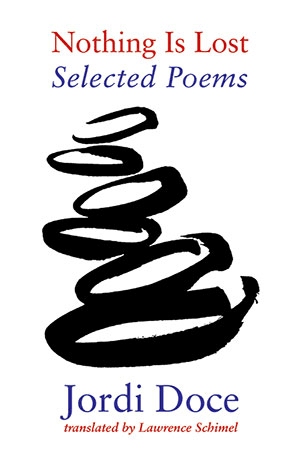
Jordi Doce We Were Not There
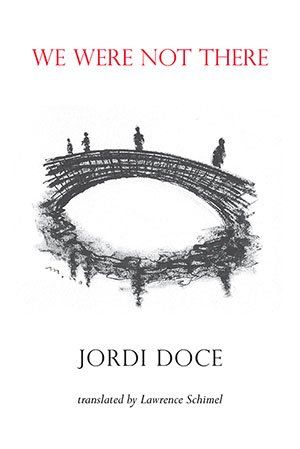
Jordi Doce Master of Distances
Translated from Spanish by Terence Dooley
Published 2023. Paperback, 112pp, 8.5 x 5.5ins, £12.95 / $20.
Bilingual edition.
ISBN 9781848618862 [Download a sample PDF from this book here .]
Selected as Best Poetry Book of 2022 in Spain by
El Cultural.
Master of Distances consists of a hundred or so prose fragments fluctuatingbetween dream, nightmare and a harsh reality: the bleakness of ageing,and accompanying the loved one through a long and debilitating illness. The continuity of mood and imagery gradually melds the fragments intoa single poem. The poet stumbles confusedly as through a labyrinth offeeling and sensation. Who or what is the mysterious master of distancesof the title? Time? Language? Oneself? The answer is a radical experimentin poetry and a new departure for this fine lyric poet.
Terence Dooley (ed. / trans.) Ten Contemporary Spanish Women Poets
Translated from Spanish by Terence Dooley. Bilingual volume.
Published 2020. Paperback, 188pp, 9 x 6ins, £14.95 / $23
ISBN 9781848617223 [Download a sample PDF from this book here .]
Poetry Book Society Recommended Translation
This is the first anthology of its kind to appear in the UK, and features ten poets: Pilar Adón, Martha Asunción Alonso, Graciela Baquero, Mercedes Cebrián, María Eloy-García, Berta García Faet, Erika Martínez, Elena Medel, Miriam Reyes and Julieta Valero — six born in the 1970s, three in the 1980s, and one in the 1960s.
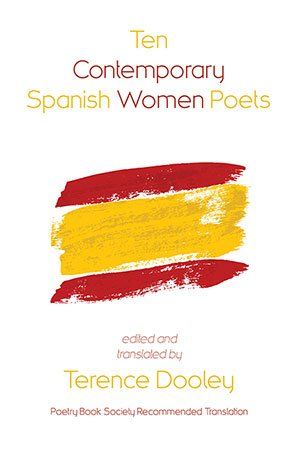
Tony Frazer (ed) Spanish Poetry of the Golden Age, in contemporary English translations
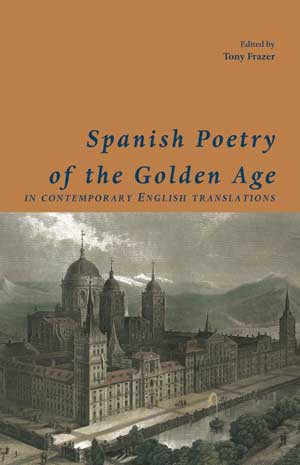
Forrest Gander (ed./trans.) Panic Cure — Poetry from Spain for the 21st Century
Published 2013. Paperback, 210pp, 9x6ins, £14.95 / $23. Bilingual edition.
ISBN 9781848612952 [Download a sample PDF from this book here (translations only).]
The poets featured in this volume are Antonio Gamoneda, Olvido García Valdés, Miguel Casado, Marcos Canteli, Sandra Santana, Benito del Pliego, Julia Piera, Ana Gorría, Pilar Fraile Amador, and Esther Ramón.
"This anthology charts some of my own enthusiasms; it isn't a comprehensive list. It seems more significant to represent ten substantial writers with a generous selection of poems than thirty or forty writers with one or two poems apiece. The ten poets collected here represent one of many possible configurations of an exploratory surge that signals a moment of change in Spain's literature." (Forrest Gander)
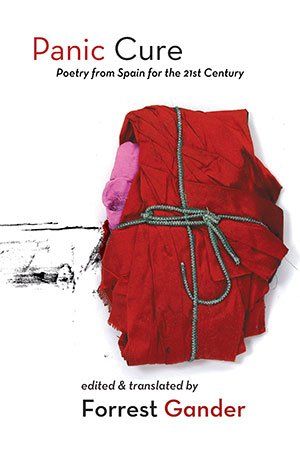
Fernando de Herrera: Selected Poems
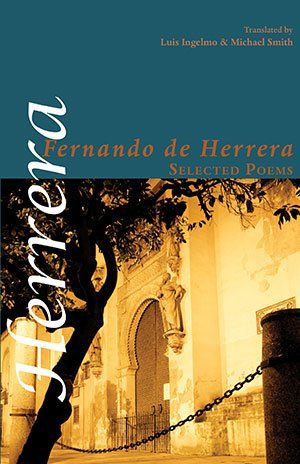
Antonio Machado Solitudes and Other Early Poems
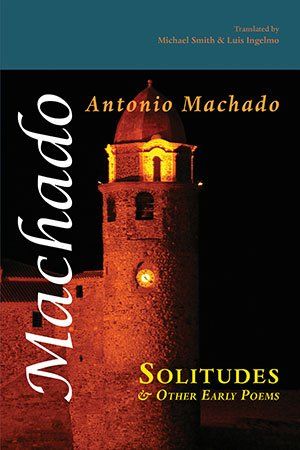
Jorge Manrique Stanzas on the Death of His Father
Published 2021. Paperback, 102pp, 8.5 x 5.5ins, £10.95 / $18.
Coplas a la muerte de su padre by Jorge Manrique (c.1440–79) is one of the most celebrated poems in the Spanish language. Written shortly before the poet’s death, it is a dignified elegy that speaks not just of a personal loss, that of the poet’s father Rodrigo Manrique (d.1476), but of the evanescence of all things. Its popularity is aided by memorable lines, not least the two opening metaphors: man’s life is a river meandering unto the sea of death, and this world is the road to the next, the lasting dwelling place. The poem replicates these reflections in its wending form. Its forty stanzas each comprise four tercets; each tercet is made up of two longer octosyllabic verses combined with one four-syllable half-line known as pie quebrado. These regular broken lines, like beats of a heart, invest the poem with a resonant quality befitting the injunction at the opening of the poem to awaken one’s slumbering soul to the passage of time.
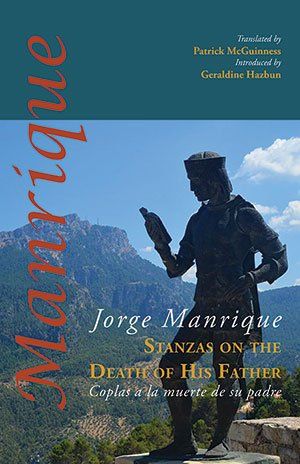
Mario Martín Gijón Sur(rendering)
Translated from Spanish by Terence Dooley. Bilingual volume.
Published 2020. Paperback, 128pp, 9 x 6ins, £12.95 / $20
ISBN 9781848617049 [Download a sample PDF from this book here .]
Mario Martín Gijón’s
(Sur)rendering is a sequence of short passionate lyrics describing a love lost and found. This might sound like nothing new in the history of poetry, but the poet immerses us in his story by a complex process of linguistic recreation: recreation in the sense of re-invention and recreation also as play, or playfulness. Eduardo Moga explains his method: ‘The poetry of Mario Martín Gijón is characterised by a morphological promiscuity which springs from an intense awareness of the susceptibility of language to experiment. Words become lexical clay in the hands of the poet, or articulated entities into which other words may be telescoped. Words break, unscrew, crumble onto the page like sand. They are like scattered pieces of a mosaic reassembled to form a new puzzle. This is done by the insertion of brackets around letters, slashes allowing a choice between letters, dashes severing or connecting syllables, suffixes or prefixes belonging equally to the words surrounding them. It multiplies the ways in which a phrase can be read, multiplies its potential simultaneous meanings.”
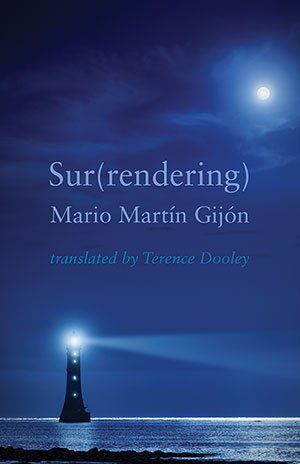
Eduardo Moga Selected Poems
Translated from Spanish by Terence Dooley. Bilingual edition.
Published 2017. Paperback, 160pp, 9 x 6ins, £14.95 / $23
ISBN 9781848615311 [Download a sample PDF from this book here .]
We have become used to a life of routine and uniformity: at work, in our relationships with others and with ourselves when we seek to understand what surrounds and subjugates us. Messages flood in and, instead of criticising reality, they reinforce the status quo and encourage us to accept it and maintain it. To counterbalance the hierarchies and justifications of modern life, there are voices raised in protest, like Eduardo Moga’s, which don’t mourn a presumed lost golden age, or bewail their disillusionment. That phase was left behind for Moga long ago, and we must presume he underwent an apprenticeship of disappointment: the discovery that the gods do not love us, but torment us, and then put all his efforts into unlearning it all. Moga’s poetry does not preach, however, or burden us with rules or ideas to bring us to an imaginary better world, here or in the afterlife.
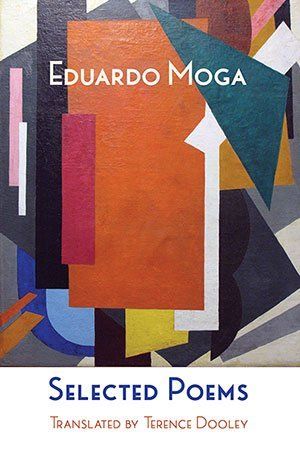
Eduardo Moga My Father
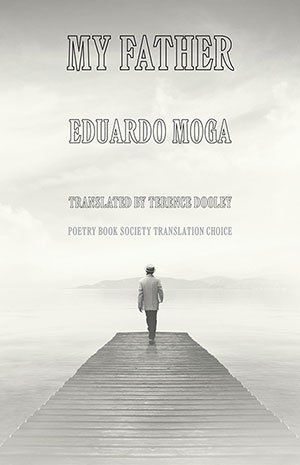
Eduardo Moga (ed.) Streets Where to Walk Is to Embark
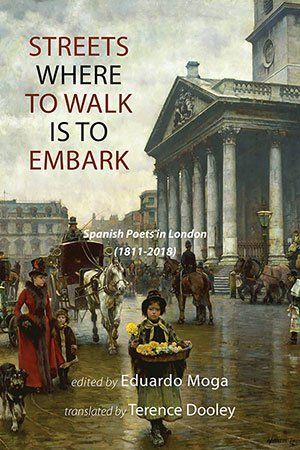
José Antonio Muñoz Rojas The Life of the Fields
Translated from Spanish by Andrew Dempsey & Álvaro García
Published 2024. Paperback, 132pp, 8.5 x 5.5ins, £12.95 / $20
ISBN 9781848619500
Tien Mai, the poet-narrator of Daniel Samoilovich’s book-length sequence, Awaking Demons, is a self-exiled Vietnamese princeling grumpily eking out a hotel life in 1930s Switzerland. ‘Here / where even the butterflies are different’ is a source of amusement and amazement to him as he details the behaviour of the hotel servants and the other guests, and the strange local customs. But more often his mind turns to the woman he has left behind: ‘The distance between us is greater / than the empire of night’, and to the consolations of Eastern art, especially the poets of the Tang dynasty, Wang Wei, Du Mu and Li Po. Like them, he stands at his lectern with his brushes, composing in meticulous calligraphy, in perfect ideograms, poems of nature, philosophy, memory and love, though against the backdrop of the Swiss lakes rather than the Yangtze river. Tien Mai is a rounded and subtle creation – querulous, humorous, cynical, profound, whimsical, romantic – and rather a wonderful lyric poet.
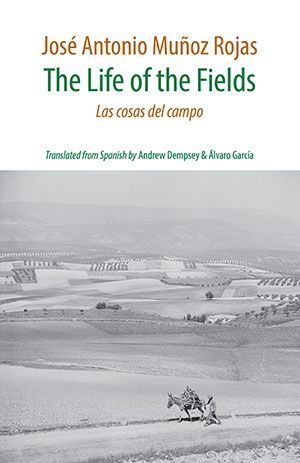
Aníbal Núñez Selected Poems
Translated from Spanish by Michael Smith & Luis Ingelmo. Bilingual edition.
Published 2013. Paperback, 303pp, 9x6ins, £14.95 / $23.
ISBN 9781848612594 [Download a sample PDF from this book here (Translations only).]
Aníbal Núñez (1944-1987) has been described as the best Spanish poet of his generation, sometimes called the generation of ’68. His recognition has been a long time coming, no doubt due to the fact that he stood outside the accepted currents of his time. Poet, painter, essayist and translator, he died young, but left behind a very large body of work which has only begun to receive its due in recent years, as the critical orthodoxy in Spain has begun to accommodate his singular vision.
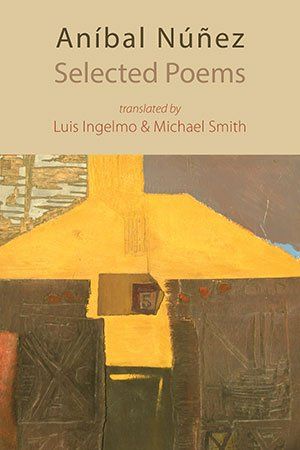
Manuela Palacios (ed.) Forked Tongues — Galician, Basque and Catalan Women's Poetry
Translated from Galician, Basque and Catalan by various Irish poets. Bilingual edition.
Published 2012. Paperback, 184pp, 9x6ins, £14.95 / $23
SBN 9781848612419 [Download a PDF with the introduction to this book here .]
Galicia, the Basque country and Catalonia have often found in Ireland an "inspiring Other" whether for political, social or cultural reasons. This anthology engages in an intercultural dialogue which redefines and strengthens the literary bonds among these communities. A selection of the most prominent Galician, Basque and Catalan contemporary women poets have their verse recreated in English by Irish writers. Together they enrich the European literary scene by celebrating its diversity.
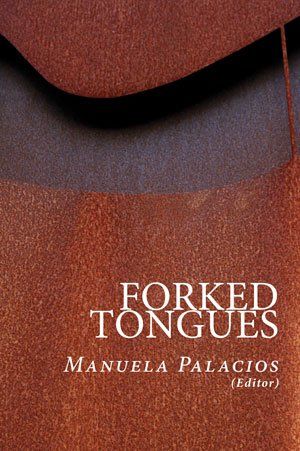
Chus Pato Charenton
Translated from Galician by Erín Moure. English only.
Published 2007. Paperback, 116pp, 8.5x5.5ins, £12.95 / $20
ISBN 9781905700332 [Download a sample PDF from this book here .]
Chus Pato is the leading contemporary poet in Galicia. All of her work is written in the Galician language ( Galego ), but contrary perhaps to one's expectations of work written in what is a minority language, and one also long-repressed, her work is avant-garde, postmodern, and reflects the author's Marxist beliefs as well as her belief in the necessity of independence for Galicia. This is a radical poetry that, despite its remote origins, can speak powerfully across borders and languages.
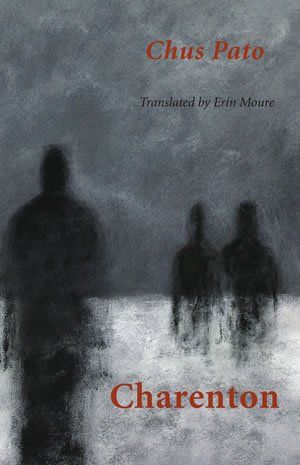
Chus Pato m-Talá
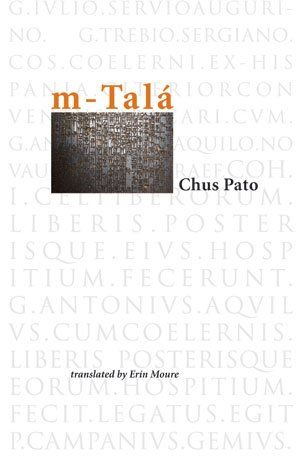
Chus Pato Hordes of Writing
Translated from Galician by Erín Moure. English only.
Published 2011. Paperback, 90pp, 8.5x5.5ins, £10.95 / $18.
ISBN 9781848611672 [Download a sample PDF from this book here .]
There was death and death entered love; writing mutated. Even so, when the poem writes itself, it is loyal only to its own wound; this is its law of gravity. Hordes of Writing , the third book in a projected pentalogy, Method , is an essential book from one of the most abysmal, mutant, indispensable and rupturist contemporary European poets.
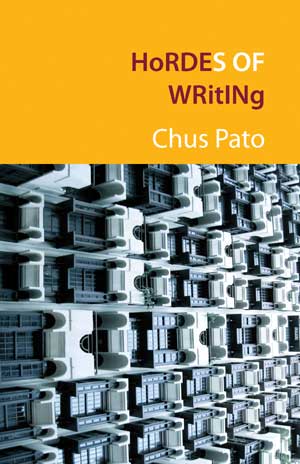
Mariano Peyrou The Year of the Crab
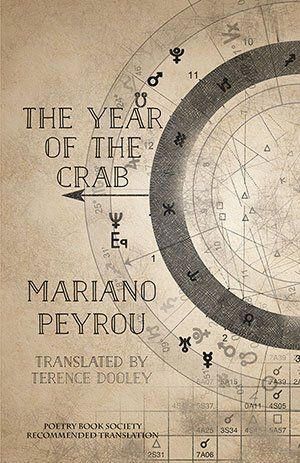
Mariano Peyrou Possibilities in Shade
Published 2023. Paperback, 76pp, 8.5 x 5.5ins, £10.95 / $18. Bilingual edition.
Mariano Peyrou’s pulsating and mesmerizing meditation on love, time, and memory, here elegantly translated by Terence Dooley, is at once minimalist and expansive: its subtle repetition of key nouns and verbs creates a dreamscape in which ‘two parallel lines meet / in your eyes.’ If parallel, how can these lines meet? The path to understanding repeatedly confronts a mountain, because ‘Similarity / and difference only become apparent / with time.’ Peyrou’s Possibilities in Shade is a beautiful love poem, an inspired ode to self-recognition.” —Marjorie Perloff
Carlos Piera Difficult Differences
Translated from Spanish by Roberta Quance. Bilingual edition.
Published June 2025. Paperback, 150pp, 9 x 6ins, £12.95 / $20
ISBN 9781848619203
"Can the poet speak for his fellow citizens while recognising the crisis of the self within himself? And the feeling of being disempowered? In modern times, who has ever asked the poet to set himself up as a spokesperson? Piera tackles this problem by demonstrating a prodigious ability to imagine himself as other in order to talk about himself. The poet, characteristically, lives by and through his characters, be they Cassandra (the unauthorised prophetess) mermaids (more threatened than threatening) or the outcast whom he ironically labels ‘weeds’. The worst fate is to have no voice or to have one that is despised, like Cassandra or the ‘weeds’, unable to do much more than scream. Poetry emerges from such contradictions." —From the prologue by Roberta Ann Quance
Manuel Rivas The Disappearance of Snow
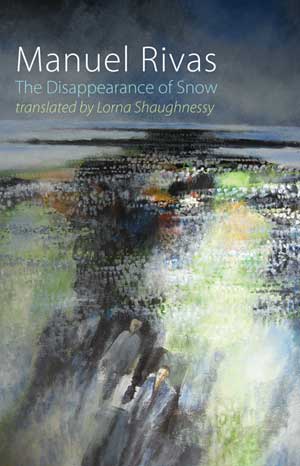
Manuel Rivas The Mouth of the Earth

Claudio Rodríguez Collected Poems
Translated from Spanish by Luis Ingelmo & Michael Smith. Bilingual edition.
Published 2008. Paperback, 416pp, 9x6ins, £16.95 / $29
ISBN 9781848610095 [Download a sample PDF from this book here .]
The first substantial collection of Claudio Rodríguez's work in English offers the complete poems, in a bilingual edition. Translated by Michael Smith (who was responsible for the Shearsman editions of Rosalía de Castro, Gustavo Adolfo Bécquer and César Vallejo) and Luís Ingelmo (who worked on the Bécquer edition with Michael Smith and wrote the introduction and notes for that volume), this is as good an introduction as it is possible to get for an unfamiliar, but major literary figure. Perhaps the most important of the '50s generation in Spain, Rodríguez's work deserves to be better-known in the anglophone world.
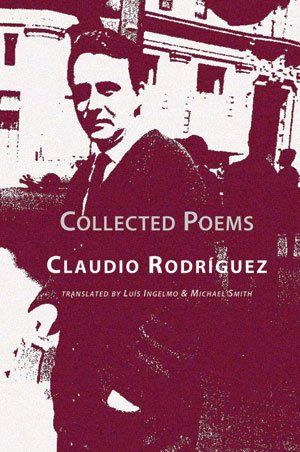
Andrés Sánchez Robayna The Book, Behind the Dune
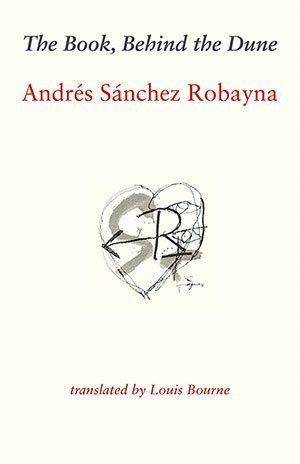
Michael Smith & Luis Ingelmo (eds & trans.) Cantes flamencos (Flamenco Songs): The Deep Songs of Spain
Published 2012. Paperback, 116pp, 8.5x5.5ins, £12.95 / $20 Bilingual edition.
ISBN 9781848612105 [Download a sample PDF from this book here .]
More than 250 quatrains of love and loss, these are the texts to those inimitable flamenco performances — these are the songs wailed by those keening male voices, as the red-and-black-clad women dancers stamp, pirouette and fire castanet rhythms at machine-gun pace. Not high art certainly, but a part of deeper fabric of the real Spain, and a powerful influence on poets such Lorca.
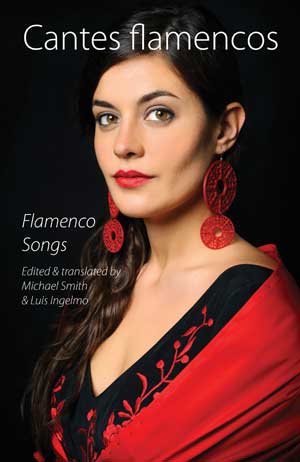
Irene Solà Beast
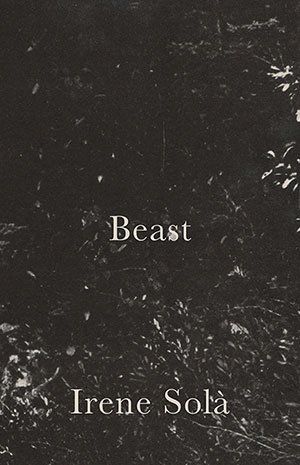
Juan Antonio Villacañas Selected Poems
Translated from Spanish by Michael Smith & Beatriz Villacañas. Bilingual edition.
Edited by Luis Ingelmo.
Published 2009. Paperback, 168pp, 9x6ins, £14.95 / $23
ISBN 9781848610637 [Download a sample PDF from this book here .]
Juan Antonio Villacañas (1922–2001) was one of the most significant poets in post-war Spain, and this volume—prepared with the help of the poet's daughter—is the first edition of his work to be made available in English.
